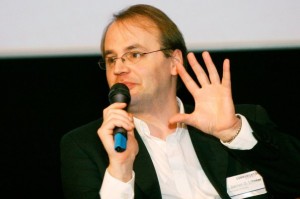 I have always championed conferences as a means for both becoming known within the academic community as well as the opportunities they provide to meeting people with similar research interests and building networks of contacts. It was with these goals in mind I put together a bid to the EU Network Fund to attend the 2012 IPSA (International Political Studies Association) Conference in Madrid on Re-ordering Power: Shifting Boundaries. Happily I was successful and so the planning now starts, and it is important to go to a conference with a plan.
I have always championed conferences as a means for both becoming known within the academic community as well as the opportunities they provide to meeting people with similar research interests and building networks of contacts. It was with these goals in mind I put together a bid to the EU Network Fund to attend the 2012 IPSA (International Political Studies Association) Conference in Madrid on Re-ordering Power: Shifting Boundaries. Happily I was successful and so the planning now starts, and it is important to go to a conference with a plan.
I am already highly involved in the Conference. I am Co-convenor and chair of ‘Political participation in the Web 2.0 era’ panel and Co-convenor and Discussant of ‘Political Marketing: empowering voters or electoral organisation’ panel. I am also presenting a paper on online political marketing and the 2011 Polish election within the panel entitled ‘Civic Participation and Public Sphere’, co-authored with Karolina Koc-Michalska.
 IPSA is, as the name suggests, a global organisation connecting scholars of political science from every nation. It is thus a fantastic opportunity to meet and present work to a range of peers. Being involved in convening panels presents even further opportunities for networking. The themes of my panels relate to a number of key questions regarding strategic political communication and voter engagement, in particular how campaigning (during elections or as part of the permanent campaign) and communication by representatives is evolving due to its adaptation for digital media and with what impact. These themes link with work I want to develop for a COST initiative. COST funding streams are designed for building partnerships. The initial stage is to propose an idea under an open call for a network, to be completed by March 30th. If this is successful the idea must then developed and fully costed for the second round, the shortlisted candidates then must present their ideas prior to final acceptance.
IPSA is, as the name suggests, a global organisation connecting scholars of political science from every nation. It is thus a fantastic opportunity to meet and present work to a range of peers. Being involved in convening panels presents even further opportunities for networking. The themes of my panels relate to a number of key questions regarding strategic political communication and voter engagement, in particular how campaigning (during elections or as part of the permanent campaign) and communication by representatives is evolving due to its adaptation for digital media and with what impact. These themes link with work I want to develop for a COST initiative. COST funding streams are designed for building partnerships. The initial stage is to propose an idea under an open call for a network, to be completed by March 30th. If this is successful the idea must then developed and fully costed for the second round, the shortlisted candidates then must present their ideas prior to final acceptance.
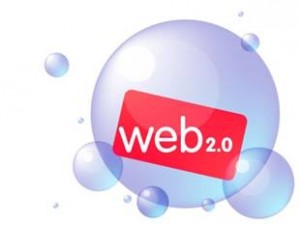 The idea for the network is how interactive communication technologies can contribute to democracy. The proposed project is to focus on patterns of influence online, basically how representatives (parliamentarians, lobby group members and media elites) and independent actors and citizens meet online (within social networks, on forums or through use of weblog tools), how they interact and whether influence is unidirectional from elite outwards or multi-directional. The aim is to develop a model of best practice for the use of Web 2.0 tools and platforms for those active in politics who seek to engage with citizens. This initiative is central to new styles of communication emerging in theUSAunder the Obama administration but is also being encouraged by the European Parliament in order to legitimise that legislature as well as by numerous political think tanks. Therefore, there are indications that many official bodies, from legislatures to NGOs, are pushing for greater use of the online environment to reconnect citizens to electoral politics. To be successful this project requires input from a range of scholars from various disciplines including political science, communication studies and ICT development.
The idea for the network is how interactive communication technologies can contribute to democracy. The proposed project is to focus on patterns of influence online, basically how representatives (parliamentarians, lobby group members and media elites) and independent actors and citizens meet online (within social networks, on forums or through use of weblog tools), how they interact and whether influence is unidirectional from elite outwards or multi-directional. The aim is to develop a model of best practice for the use of Web 2.0 tools and platforms for those active in politics who seek to engage with citizens. This initiative is central to new styles of communication emerging in theUSAunder the Obama administration but is also being encouraged by the European Parliament in order to legitimise that legislature as well as by numerous political think tanks. Therefore, there are indications that many official bodies, from legislatures to NGOs, are pushing for greater use of the online environment to reconnect citizens to electoral politics. To be successful this project requires input from a range of scholars from various disciplines including political science, communication studies and ICT development.
The conference will allow, following submission of the initial proposal, to develop ideas, from both theoretical and methodological perspectives, gain firm commitments to collaborate within a network, either one funded through the COSTinitiative or by other means, and apportion tasks required for successful completion of a large bid. Furthermore, the event offers opportunities to meet and set out clear plans for development of the research agenda, identify further potential participants either at the conference or though contacts made there, and co-ordinate future communication. Central to this, particularly while awaiting the outcome of funding bids, will be the creation of an online space to share ideas, literature, calls for papers and general discussion points to maintain communication and so the cohesion and enthusiasm of partners – possibly a Google group of similar space for closed discussion and sharing. That is the plan. I am all set for some network building.
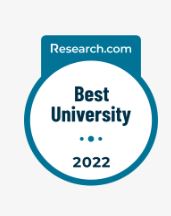 This week Research.com, a leading academic platform for researchers, finished releasing the 2023 rankings of best scientists and universities in the world across all major scientific disciplines. Click here for a quick summary of how Bournemouth University stood in these rankings.
This week Research.com, a leading academic platform for researchers, finished releasing the 2023 rankings of best scientists and universities in the world across all major scientific disciplines. Click here for a quick summary of how Bournemouth University stood in these rankings.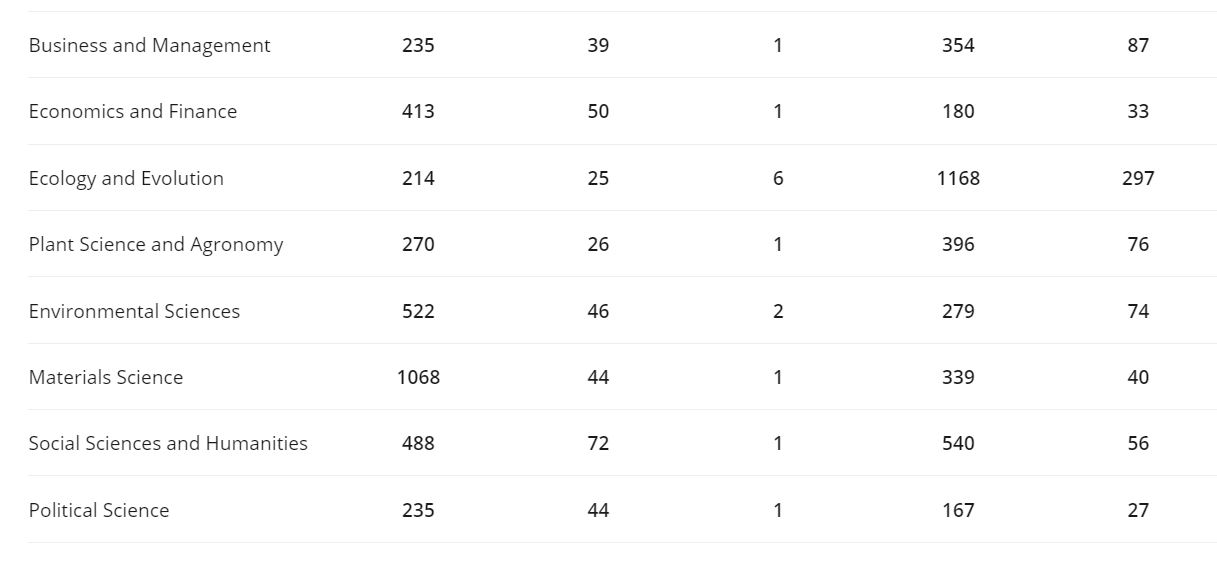 The single largest group of six BU academics belonged to ‘Ecology & Evolution’, two scholars are based in ‘Environmental Science’ and one each fit into six other individual scientific disciplines.
The single largest group of six BU academics belonged to ‘Ecology & Evolution’, two scholars are based in ‘Environmental Science’ and one each fit into six other individual scientific disciplines.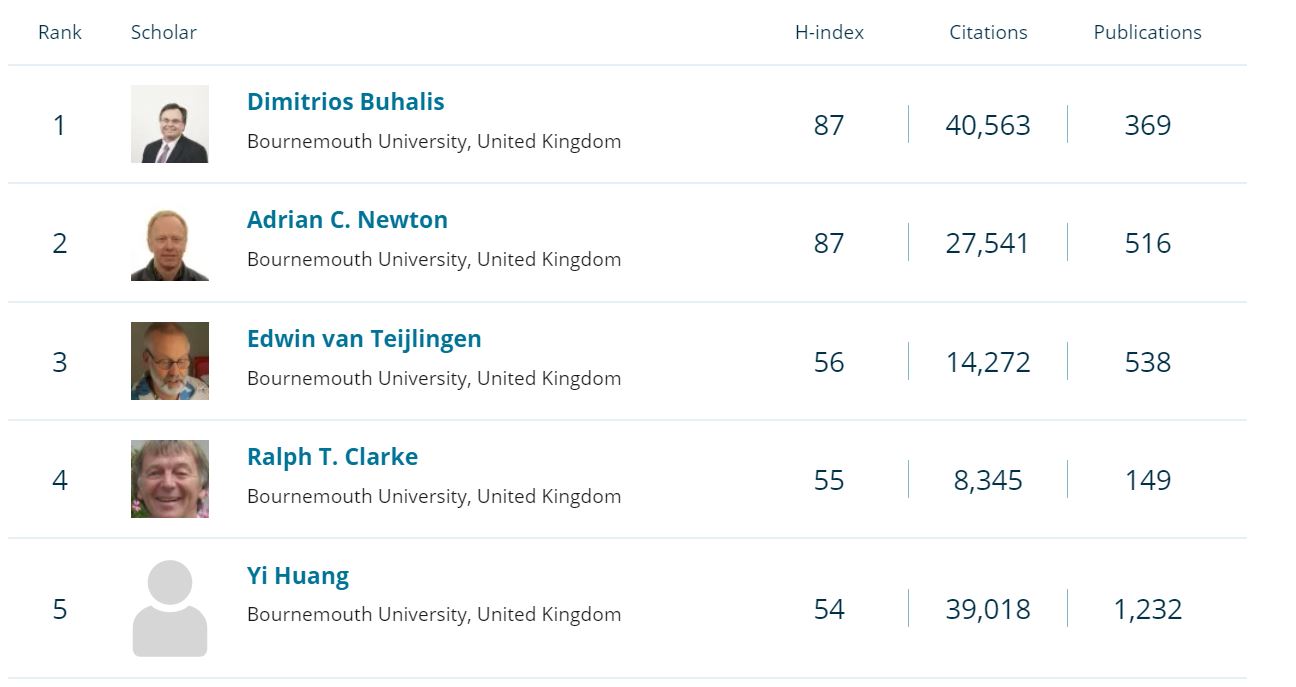













 Dr. Ashraf cited on ‘Modest Fashion’ in The Guardian
Dr. Ashraf cited on ‘Modest Fashion’ in The Guardian NIHR-funded research launches website
NIHR-funded research launches website Academics write for newspaper in Nepal
Academics write for newspaper in Nepal New paper published on disability in women & girls
New paper published on disability in women & girls Global Consortium for Public Health Research 2025
Global Consortium for Public Health Research 2025 MSCA Postdoctoral Fellowships 2025 Call
MSCA Postdoctoral Fellowships 2025 Call ERC Advanced Grant 2025 Webinar
ERC Advanced Grant 2025 Webinar Horizon Europe Work Programme 2025 Published
Horizon Europe Work Programme 2025 Published Horizon Europe 2025 Work Programme pre-Published
Horizon Europe 2025 Work Programme pre-Published Update on UKRO services
Update on UKRO services European research project exploring use of ‘virtual twins’ to better manage metabolic associated fatty liver disease
European research project exploring use of ‘virtual twins’ to better manage metabolic associated fatty liver disease